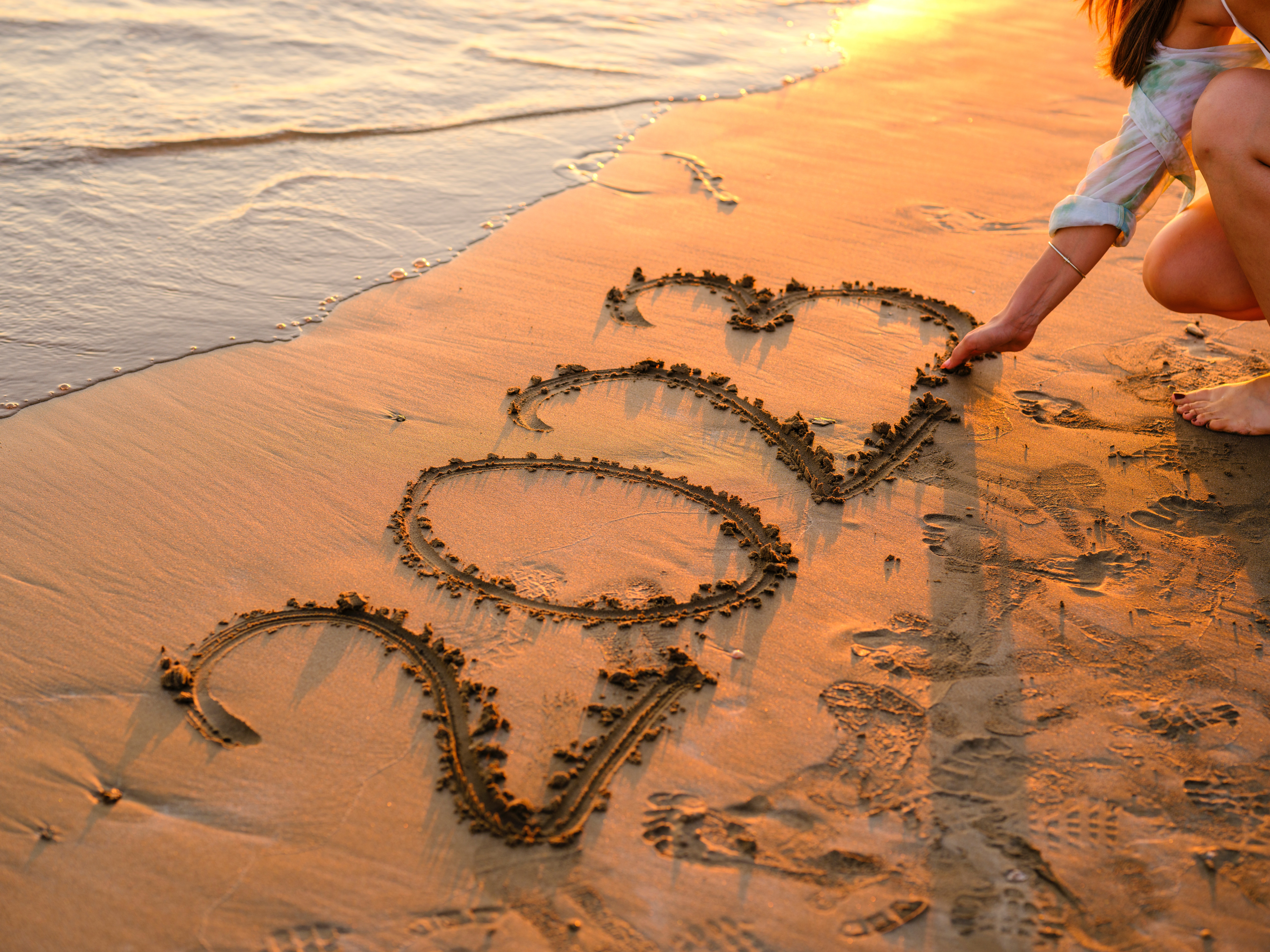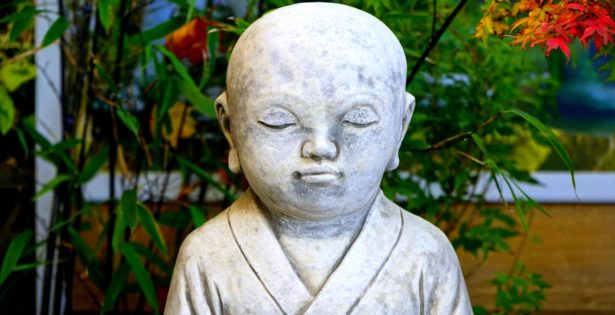WP_Query Object
(
[query] => Array
(
[category__in] => Array
(
[0] => 67
[1] => 23
[2] => 66
[3] => 65
[4] => 26
)
[post__not_in] => Array
(
[0] => 8656
)
[posts_per_page] => 50
[ignore_sticky_posts] => 1
[orderby] => desc
[_shuffle_and_pick] => 3
)
[query_vars] => Array
(
[category__in] => Array
(
[0] => 67
[1] => 23
[2] => 66
[3] => 65
[4] => 26
)
[post__not_in] => Array
(
[0] => 8656
)
[posts_per_page] => 50
[ignore_sticky_posts] => 1
[orderby] => desc
[_shuffle_and_pick] => 3
[error] =>
[m] =>
[p] => 0
[post_parent] =>
[subpost] =>
[subpost_id] =>
[attachment] =>
[attachment_id] => 0
[name] =>
[pagename] =>
[page_id] => 0
[second] =>
[minute] =>
[hour] =>
[day] => 0
[monthnum] => 0
[year] => 0
[w] => 0
[category_name] => creative_living
[tag] =>
[cat] => 67
[tag_id] =>
[author] =>
[author_name] =>
[feed] =>
[tb] =>
[paged] => 0
[meta_key] =>
[meta_value] =>
[preview] =>
[s] =>
[sentence] =>
[title] =>
[fields] =>
[menu_order] =>
[embed] =>
[category__not_in] => Array
(
)
[category__and] => Array
(
)
[post__in] => Array
(
)
[post_name__in] => Array
(
)
[tag__in] => Array
(
)
[tag__not_in] => Array
(
)
[tag__and] => Array
(
)
[tag_slug__in] => Array
(
)
[tag_slug__and] => Array
(
)
[post_parent__in] => Array
(
)
[post_parent__not_in] => Array
(
)
[author__in] => Array
(
)
[author__not_in] => Array
(
)
[search_columns] => Array
(
)
[suppress_filters] =>
[cache_results] => 1
[update_post_term_cache] => 1
[update_menu_item_cache] =>
[lazy_load_term_meta] => 1
[update_post_meta_cache] => 1
[post_type] =>
[nopaging] =>
[comments_per_page] => 50
[no_found_rows] =>
[order] => DESC
)
[tax_query] => WP_Tax_Query Object
(
[queries] => Array
(
[0] => Array
(
[taxonomy] => category
[terms] => Array
(
[0] => 67
[1] => 23
[2] => 66
[3] => 65
[4] => 26
)
[field] => term_id
[operator] => IN
[include_children] =>
)
)
[relation] => AND
[table_aliases:protected] => Array
(
[0] => wp_term_relationships
)
[queried_terms] => Array
(
[category] => Array
(
[terms] => Array
(
[0] => 67
[1] => 23
[2] => 66
[3] => 65
[4] => 26
)
[field] => term_id
)
)
[primary_table] => wp_posts
[primary_id_column] => ID
)
[meta_query] => WP_Meta_Query Object
(
[queries] => Array
(
)
[relation] =>
[meta_table] =>
[meta_id_column] =>
[primary_table] =>
[primary_id_column] =>
[table_aliases:protected] => Array
(
)
[clauses:protected] => Array
(
)
[has_or_relation:protected] =>
)
[date_query] =>
[request] =>
SELECT SQL_CALC_FOUND_ROWS wp_posts.ID
FROM wp_posts LEFT JOIN wp_term_relationships ON (wp_posts.ID = wp_term_relationships.object_id)
WHERE 1=1 AND wp_posts.ID NOT IN (8656) AND (
wp_term_relationships.term_taxonomy_id IN (23,26,65,66,67)
) AND ((wp_posts.post_type = 'post' AND (wp_posts.post_status = 'publish' OR wp_posts.post_status = 'acf-disabled')))
AND ID NOT IN
(SELECT `post_id` FROM wp_postmeta
WHERE `meta_key` = '_pilotpress_level'
AND `meta_value` IN ('','employee')
AND `post_id` NOT IN
(SELECT `post_id` FROM wp_postmeta
WHERE `meta_key` = '_pilotpress_level'
AND `meta_value` IN ('' )))
GROUP BY wp_posts.ID
ORDER BY wp_posts.post_date DESC
LIMIT 0, 50
[posts] => Array
(
[0] => WP_Post Object
(
[ID] => 8827
[post_author] => 3
[post_date] => 2022-10-07 21:37:58
[post_date_gmt] => 2022-10-07 21:37:58
[post_content] =>
An old tai ji quan (tai chi) teacher of mine used to say, "Yi dao ... qi dao ... li dao," which roughly means the focus of your mind (yi dao) dictates the way your energy moves (qi dao) which dictates the expression of your power. (This utterance came mostly when he noticed that I was looking distracted.) In other words, the ability to effectively direct your power is founded in the ability to effectively focus your mind.
Mental focus, known as yi, is one of the five aspects of consciousness defined in Traditional Chinese Medicine (TCM). Each of the five is considered to be associated with a particular part of the body, and the yi corresponds with the digestive system. In a way digestion is a kind of inner focus. When food enters the body, the digestive tract focuses its attention on it – breaking it down to its elemental parts, extracting what’s useful, and absorbing it. It makes sense that we use the word “digest” to speak about processing and assimilating a new or challenging idea or experience.
Disruption of the digestive system frequently goes hand in hand with poor mental focus. The most common example is Attention Deficit (Hyperactivity) Disorder in people who have a poor diet and/or erratic food intake and/or food sensitivities and/or gut imbalances.
There are two main patterns of digestive imbalance as it relates to mental function. The first is poor assimilation of the vital nutrients in our food, leading to a state of deficiency and a “malnourished mind.” The second is the development of phlegm, which makes us cloudy-headed and may further impede the assimilation of nutrients. The Chinese medical use of the word "phlegm" here denotes a much broader concept than simple mucus. Phlegm is anything that impedes our flow or accumulates in us but serves no functional purpose, such as plaques, cysts, excess body fat, or any other similarly tenacious “gunk” in our system. It may be tangible or intangible, and it doesn't go away easily.
Phlegm can form as a byproduct of impaired digestion. Sometimes it develops when we’re exposed to foods that irritate the body – similar to how an oyster secretes pearl material when it’s irritated by a grain of sand. Other times it develops because something else disturbs the digestive process (such as trying to digest too much mental material while trying to digest food, or eating while the eating, nervous system is activated by stress), leading to incomplete assimilation of nutrients and excretion of waste.
TCM’s notion of a digestive origin for mental disturbances is shared by Ayurveda, the traditional medical system of India, which goes so far as to say that all health problems originate in the gut. Recently these millennia-old concepts have been corroborated through our emerging understanding of the gut-brain axis – the complex interplay between the gastrointestinal tract, its microbial population, and the central nervous system.
Let’s look at some ways we can improve digestion for better mental health.
- Choose nutrient-dense foods. Support high-quality thinking with high-quality nourishment: fresh vegetables, nuts and seeds, clean proteins (free range omega-3 eggs, organic grass-fed dairy products, sustainably grown oily fish, small amounts of pasture raised meat), whole fruits, and a little whole grain. Limit your intake of fried foods, sweetened foods, and flour.
- Avoid foods you’re sensitive to. One of the most common symptoms of eating a food that’s incompatible with your system is lower energy and less-sharp thinking. Keep a food journal and track of any foods you don’t thrive on. If it’s hard to determine, consider doing an elimination diet or elemental diet (powdered, hypoallergenic meal replacement) to clean out and then systematically reintroduce foods.
- Eat in a slow, relaxed, conscious way. Unlike filling up your gas tank, which you want to be as fast as possible, eating isn’t merely a “fill up” – it’s also a way to tune in, to savor, to be grateful, and to consciously nourish your mind-body. There can be a vast qualitative difference between a rushed meal you barely pay attention to versus one you enjoy to the fullest. Get media out of the eating space. Set your stresses aside. Stay connected to the act of eating.
- Stop eating before you’re full. Stop eating before you’re full. Stop eating before you’re full.
- Try bitters. Bitter digestive-stimulating herbs have the dual effect of toning the digestive tract and clearing toxins and phlegm. Bitters as cocktail mixers are experiencing a surge of popularity, so there are more blends available than ever. I recommend a mixture of pure bitters such as gentian, rhubarb root, myrrh, Peruvian bark, goldenseal, yellow dock, barberry, or Oregon grape root with some aromatic carminative spices (promoting assimilation), such as citrus peel, anise, fennel, caraway, cardamom, or ginger. Take a squirt before and/or after each meal in a little water.
- Move a little after meals. A walk is perfect. This helps promote assimilation.
- If you need extra support, consider a good digestive enzyme blend. These supplement what your pancreas produces (and won’t cause your body to produce less) and help in the breakdown of food for better absorption. There are many good products out there. Two of my favorites are DigestZymes made by Designs for Health and Digest made by Transformation Enzymes. Take some at the beginning of each meal. Sometimes they make a remarkable difference.
Interestingly, the connection between digestion and mental function works both ways. Not only can impaired digestion contribute to diminished cognitive function, mental and emotional disturbances can also contribute to poor digestion. Worry, in particular, is considered taxing to the digestive mechanisms in TCM because it habitually engages the digestive mechanisms as you “chew” on problems. If you can make mealtimes a ritual in which you always take a break from thinking about stressful things, you’ll not only enjoy your food more, you’ll also derive greater benefit from it.
Be well,
Peter
[post_title] => The Connection Between Eating and Mental Clarity
[post_excerpt] =>
[post_status] => publish
[comment_status] => open
[ping_status] => open
[post_password] =>
[post_name] => 8827
[to_ping] =>
[pinged] =>
[post_modified] => 2022-10-07 21:54:39
[post_modified_gmt] => 2022-10-07 21:54:39
[post_content_filtered] =>
[post_parent] => 0
[guid] => https://thedragontree.com/?p=8827
[menu_order] => 0
[post_type] => post
[post_mime_type] =>
[comment_count] => 2
[filter] => raw
[webinar_id] => 0
)
[1] => WP_Post Object
(
[ID] => 8654
[post_author] => 3
[post_date] => 2022-04-29 22:22:06
[post_date_gmt] => 2022-04-29 22:22:06
[post_content] =>
As a weight-obsessed culture, we don’t often want to think of ourselves as big, but there’s an expression you hear once in a while – “That’s big of you” – and it means something good. TheFreeDictionary.com defines it as: “Noble or commendable” (unfortunately it adds, “this phrase is often said sarcastically”).
It’s as if we experience a person as somehow bigger when they embody their virtuousness. In contrast, when someone acts from animalistic drives, out of selfishness, fear, rigidity, or spite, we often see them as small.
These perceptions make sense because when we’re acting from our “big self,” we have access to a broader palette of options. We have the perspective to step back from the charged elements of a situation and choose who we want to be. When we’re in our “small self” we have few options; our emotions and narrow beliefs are in the driver’s seat.
This is why Briana and I so often lean on the words growth and expansion when discussing the work we do and the processes by which people overcome limitations. And it’s why we chose the name Sacred Expansion for our upcoming course.
When our kids were little, they would sometimes talk to us about getting older and what that meant. They’d proudly point out that they were older or bigger than some other kid, as if this signified a higher level of importance. And they would proclaim that when they got to be 20, or 30, or 100 years old, they’d be SO big and SO grown-up. Usually I would just enjoy this fantasy with them, but once in a while I’d explain that we don’t actually get much taller after our teen years . . . and many people don’t really continue to “grow up” after that age either.
The latter point was probably lost on them, but I think it’s important that they understand it as they get closer to being adults: our psychological makeup doesn’t necessarily get upgraded as our body matures. There are plenty of children in the world operating through adult bodies. Knowing this can make it easier to find compassion for each other.
This arrested development is mostly the result of our animalistic wiring (survival, pain avoidance, and pleasure-seeking) combined with restrictive programming from our parents and community. Each generation indoctrinates the next in both the wisdom and limitations of those who came before us. Often our socialization holds us back, instilling so many with a message that amounts to “life is a struggle; just get through it.”
But we can help each other. One inspired person can light up another, and from there the illumination can continue to spread. We all have the ability to liberate ourselves from the programming that holds us back. Often requires improving our self-awareness, honestly examining the ways we’re restricted, and choosing to release the beliefs and baggage that are degrading us. While this isn’t easy, it doesn’t have to be terrifying or tedious.
It can even be a process full of beauty and grace. That’s the idea behind Sacred Expansion. My wife, Briana, leads participants through a process of self-exploration that’s utilizes the imagery of the seasons and the language of the natural world that’s deep within each of us. Though it entails some work, the rewards come pretty quickly. While you recognize that you have a lifetime of growth and expansion ahead of you, you also know that you’ve got this. And it just gets better and better.
I heartily encourage you to join us. We start this Tuesday! And we always provide replays for those who can't make it to the live sessions.
Be well,
Peter
[post_title] => That’s Very Big of You
[post_excerpt] =>
[post_status] => publish
[comment_status] => open
[ping_status] => open
[post_password] =>
[post_name] => thats-very-big-of-you
[to_ping] =>
[pinged] =>
[post_modified] => 2022-04-29 22:22:19
[post_modified_gmt] => 2022-04-29 22:22:19
[post_content_filtered] =>
[post_parent] => 0
[guid] => https://thedragontree.com/?p=8654
[menu_order] => 0
[post_type] => post
[post_mime_type] =>
[comment_count] => 0
[filter] => raw
[webinar_id] => 0
)
[2] => WP_Post Object
(
[ID] => 8867
[post_author] => 3
[post_date] => 2022-11-30 23:10:21
[post_date_gmt] => 2022-11-30 23:10:21
[post_content] =>
Of all the things one could do to be healthier and happier, I consider meditation to rank among the top practices on the list.
We spend most of our lives thinking . . . judging, worrying, processing, planning, pondering, analyzing, and rehashing. Most thinking isn’t bad, per se, but it’s an unconscious, incessant habit. We rarely recognize that there’s a difference between consciousness and thinking. Our minds are constantly trying to grab our attention and monopolize our awareness, and usually we give it away freely.
What’s the problem? Well, although we have some necessary functional thoughts – e.g., “I’m almost out of gas and need to refill the tank” or “I need medical attention for this severed limb” – most of our thinking is less intentional, and it tends to distance us from the here-and-now. When thinking becomes our default state, it’s no longer a choice. It’s like defaulting to being on your phone whenever possible.
The mind is constantly saying, “I have something important / tragic / interesting / worrisome / outrageous / unfair / juicy, etc. Give me your awareness!” Over decades of doing so, we forget who/what we really are; we most strongly identify with a collection of thoughts, beliefs, and memories. Further, in letting our thoughts define us, we impose tremendous limitations on ourselves.
In my opinion there are two fundamental points of meditation: (1) to take a break from the habit of thinking and doing (2) to experience awareness itself and remember what we are beyond our thoughts. This is the opposite of what most of us do all day.
Can we have awareness without thinking? Of course. As a short exercise, rest your gaze on something in the room or out the window. See it and experience it without talking about it to yourself (or talking to yourself about something unrelated). As soon as you feel your mind about to break through with a thought, pick up your attention and put it on something else. Do this for a minute or so, then come back here.
How was it? What did you notice? Could you feel the squirminess of your mind itching to get back in the spotlight? It’s almost like the feeling of being deprived of a drug. Why should it be so uncomfortable just to experience reality without thinking? That alone should tell us something is out of order.
While there are innumerable meditation techniques, I think it’s always worth coming back to the basics. We’re taking this time to experience awareness without thinking. We’re not trying to manipulate ourselves into a spiritual state or make something mystical happen. We’re just giving the mind a rest and basking in the space that opens. Even the psyche can eventually experience it as a great relief.
This form of meditation is a bit like putting a child to bed. You’re sitting next to their bed and they sit up and say, “I forgot my water bottle on the playground!”
You lovingly rest your hand on their chest and say, “It’s ok. You can rest now.”
A few seconds later they sit up again. “Guess what happened at lunch?”
You lovingly rest your hand on their chest and say, “You can tell me later. For now, you can just rest.”
A few seconds later they sit up again. “What if Mason tries to take my money again?”
You lovingly rest your hand on their chest and say, “Later we’ll make a plan. But right now, you can rest.”
This is what you’ll do every time your mind brings up a thought. Gently and firmly say, “No, thanks,” or “You can rest now,” or “Take a break,” or “There’s nothing to attend to” or, more simply choose not to give it your attention. Even when the thought is something like, “I haven’t had a thought in like two minutes!” Every thought stream starts with you latching onto it. Unlatch.
Over time, you may notice that giving your attention to a thought takes you out of a state of peaceful stillness. Or it’s like profoundly shrinking your focal point from a vast openness to a tiny idea. With practice and repeated recognition, you’ll start to loosen the habit of thought-dominated-awareness. Your perspective will broaden – even when you’re not meditating. Thoughts will arise and instead of instantly running away with you, you’ll witness them in a context of inner space where there’s more choice about how to respond.
Please give it a try, even if it’s just for one minute. And feel free to share your experience in the comments section below.
Be well,
Peter
[post_title] => Meditation: Keep it Simple
[post_excerpt] =>
[post_status] => publish
[comment_status] => open
[ping_status] => open
[post_password] =>
[post_name] => meditation-keep-it-simple
[to_ping] =>
[pinged] =>
[post_modified] => 2022-12-01 19:51:13
[post_modified_gmt] => 2022-12-01 19:51:13
[post_content_filtered] =>
[post_parent] => 0
[guid] => https://thedragontree.com/?p=8867
[menu_order] => 0
[post_type] => post
[post_mime_type] =>
[comment_count] => 1
[filter] => raw
[webinar_id] => 0
)
)
[post_count] => 3
[current_post] => -1
[before_loop] => 1
[in_the_loop] =>
[post] => WP_Post Object
(
[ID] => 8827
[post_author] => 3
[post_date] => 2022-10-07 21:37:58
[post_date_gmt] => 2022-10-07 21:37:58
[post_content] =>
An old tai ji quan (tai chi) teacher of mine used to say, "Yi dao ... qi dao ... li dao," which roughly means the focus of your mind (yi dao) dictates the way your energy moves (qi dao) which dictates the expression of your power. (This utterance came mostly when he noticed that I was looking distracted.) In other words, the ability to effectively direct your power is founded in the ability to effectively focus your mind.
Mental focus, known as yi, is one of the five aspects of consciousness defined in Traditional Chinese Medicine (TCM). Each of the five is considered to be associated with a particular part of the body, and the yi corresponds with the digestive system. In a way digestion is a kind of inner focus. When food enters the body, the digestive tract focuses its attention on it – breaking it down to its elemental parts, extracting what’s useful, and absorbing it. It makes sense that we use the word “digest” to speak about processing and assimilating a new or challenging idea or experience.
Disruption of the digestive system frequently goes hand in hand with poor mental focus. The most common example is Attention Deficit (Hyperactivity) Disorder in people who have a poor diet and/or erratic food intake and/or food sensitivities and/or gut imbalances.
There are two main patterns of digestive imbalance as it relates to mental function. The first is poor assimilation of the vital nutrients in our food, leading to a state of deficiency and a “malnourished mind.” The second is the development of phlegm, which makes us cloudy-headed and may further impede the assimilation of nutrients. The Chinese medical use of the word "phlegm" here denotes a much broader concept than simple mucus. Phlegm is anything that impedes our flow or accumulates in us but serves no functional purpose, such as plaques, cysts, excess body fat, or any other similarly tenacious “gunk” in our system. It may be tangible or intangible, and it doesn't go away easily.
Phlegm can form as a byproduct of impaired digestion. Sometimes it develops when we’re exposed to foods that irritate the body – similar to how an oyster secretes pearl material when it’s irritated by a grain of sand. Other times it develops because something else disturbs the digestive process (such as trying to digest too much mental material while trying to digest food, or eating while the eating, nervous system is activated by stress), leading to incomplete assimilation of nutrients and excretion of waste.
TCM’s notion of a digestive origin for mental disturbances is shared by Ayurveda, the traditional medical system of India, which goes so far as to say that all health problems originate in the gut. Recently these millennia-old concepts have been corroborated through our emerging understanding of the gut-brain axis – the complex interplay between the gastrointestinal tract, its microbial population, and the central nervous system.
Let’s look at some ways we can improve digestion for better mental health.
- Choose nutrient-dense foods. Support high-quality thinking with high-quality nourishment: fresh vegetables, nuts and seeds, clean proteins (free range omega-3 eggs, organic grass-fed dairy products, sustainably grown oily fish, small amounts of pasture raised meat), whole fruits, and a little whole grain. Limit your intake of fried foods, sweetened foods, and flour.
- Avoid foods you’re sensitive to. One of the most common symptoms of eating a food that’s incompatible with your system is lower energy and less-sharp thinking. Keep a food journal and track of any foods you don’t thrive on. If it’s hard to determine, consider doing an elimination diet or elemental diet (powdered, hypoallergenic meal replacement) to clean out and then systematically reintroduce foods.
- Eat in a slow, relaxed, conscious way. Unlike filling up your gas tank, which you want to be as fast as possible, eating isn’t merely a “fill up” – it’s also a way to tune in, to savor, to be grateful, and to consciously nourish your mind-body. There can be a vast qualitative difference between a rushed meal you barely pay attention to versus one you enjoy to the fullest. Get media out of the eating space. Set your stresses aside. Stay connected to the act of eating.
- Stop eating before you’re full. Stop eating before you’re full. Stop eating before you’re full.
- Try bitters. Bitter digestive-stimulating herbs have the dual effect of toning the digestive tract and clearing toxins and phlegm. Bitters as cocktail mixers are experiencing a surge of popularity, so there are more blends available than ever. I recommend a mixture of pure bitters such as gentian, rhubarb root, myrrh, Peruvian bark, goldenseal, yellow dock, barberry, or Oregon grape root with some aromatic carminative spices (promoting assimilation), such as citrus peel, anise, fennel, caraway, cardamom, or ginger. Take a squirt before and/or after each meal in a little water.
- Move a little after meals. A walk is perfect. This helps promote assimilation.
- If you need extra support, consider a good digestive enzyme blend. These supplement what your pancreas produces (and won’t cause your body to produce less) and help in the breakdown of food for better absorption. There are many good products out there. Two of my favorites are DigestZymes made by Designs for Health and Digest made by Transformation Enzymes. Take some at the beginning of each meal. Sometimes they make a remarkable difference.
Interestingly, the connection between digestion and mental function works both ways. Not only can impaired digestion contribute to diminished cognitive function, mental and emotional disturbances can also contribute to poor digestion. Worry, in particular, is considered taxing to the digestive mechanisms in TCM because it habitually engages the digestive mechanisms as you “chew” on problems. If you can make mealtimes a ritual in which you always take a break from thinking about stressful things, you’ll not only enjoy your food more, you’ll also derive greater benefit from it.
Be well,
Peter
[post_title] => The Connection Between Eating and Mental Clarity
[post_excerpt] =>
[post_status] => publish
[comment_status] => open
[ping_status] => open
[post_password] =>
[post_name] => 8827
[to_ping] =>
[pinged] =>
[post_modified] => 2022-10-07 21:54:39
[post_modified_gmt] => 2022-10-07 21:54:39
[post_content_filtered] =>
[post_parent] => 0
[guid] => https://thedragontree.com/?p=8827
[menu_order] => 0
[post_type] => post
[post_mime_type] =>
[comment_count] => 2
[filter] => raw
[webinar_id] => 0
)
[comment_count] => 0
[current_comment] => -1
[found_posts] => 327
[max_num_pages] => 7
[max_num_comment_pages] => 0
[is_single] =>
[is_preview] =>
[is_page] =>
[is_archive] => 1
[is_date] =>
[is_year] =>
[is_month] =>
[is_day] =>
[is_time] =>
[is_author] =>
[is_category] => 1
[is_tag] =>
[is_tax] =>
[is_search] =>
[is_feed] =>
[is_comment_feed] =>
[is_trackback] =>
[is_home] =>
[is_privacy_policy] =>
[is_404] =>
[is_embed] =>
[is_paged] =>
[is_admin] =>
[is_attachment] =>
[is_singular] =>
[is_robots] =>
[is_favicon] =>
[is_posts_page] =>
[is_post_type_archive] =>
[query_vars_hash:WP_Query:private] => 140b02696c530c0acc1d9a224e9d197a
[query_vars_changed:WP_Query:private] =>
[thumbnails_cached] =>
[allow_query_attachment_by_filename:protected] =>
[stopwords:WP_Query:private] =>
[compat_fields:WP_Query:private] => Array
(
[0] => query_vars_hash
[1] => query_vars_changed
)
[compat_methods:WP_Query:private] => Array
(
[0] => init_query_flags
[1] => parse_tax_query
)
)



 Cart
Cart














